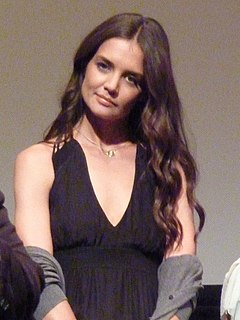A Quote by Debra Granik
When I read Daniel Woodrell's novel 'Winter's Bone,' I was drawn to the characters, the setting, and the sound of the dialog.
Related Quotes
I can pick up a screenplay and flip through the pages. If all I see is dialog, dialog, dialog, I won't even read it. I don't care how good the dialog is - it's a moving picture. It has to move all the time... It's not the stage. A movie audience doesn't have the patience to sit and learn a lesson. Their eyes need to be dazzled. The writer is the most important element in the entire film because if it ain't on the page it ain't going to be on the screen.
Reading Tomato Red-the first Daniel Woodrell novel I came upon-was a transformative experience. It expanded my sense of the possibilities not only of crime fiction, but of fiction itself-of language, of storytelling. Time and again, his work just dazzles and humbles me. God bless Busted Flush for these glorious reissues. It's a service to readers everywhere, and a great gift.
But to be perfectly frank, this childish idea that the author of a novel has some special insight into the characters in the novel ... it's ridiculous. That novel was composed of scratches on a page, dear. The characters inhabiting it have no life outside of those scratches. What happened to them? They all ceased to exist the moment the novel ended.
A novel is not an allegory.... It is the sensual experience of another world. If you don't enter that world, hold your breath with the characters and become involved in their destiny, you won't be able to empathize, and empathy is at the heart of the novel. This is how you read a novel: you inhale the experience. So start breathing.
I read an interview with Daniel Woodrell once where he said something like, basically, if people had said what they said to him in a bar instead of workshop, he would have punched them...and I finally understood that when in a class with my wife. Every time someone said something about her work, I wanted to climb across the table and stab them in the neck with my pen. And these were people I liked and respected.
I'm drawn to female characters, not all of them are strong characters. I think I'm drawn to female characters partly because they don't have as easy or as obvious a relationship to power in society, and so they suffer under social constraints or have to maneuver within them in ways men sometimes don't, or are unconscious about, or have certain liberties that are invisible to them.



































